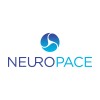
Effect of Brivaracetam (BRV) on Nonpsychotic Behavioral Side Effects in Subjects Treated Previously...
EpilepsyTrial N01395 is to evaluate the reduction of nonpsychotic behavioral side effects in subjects with Epilepsy who switched to BRV 200 mg/day after discontinuing LEV due to such side effects; as well as the efficacy, safety and tolerability of BRV. No statistical hypothesis testing will be performed.

RNS® System Pivotal Study
EpilepsyThe RNS® System Pivotal study is designed to assess safety and demonstrate that the RNS® System is effective as an adjunctive (add-on) therapy in reducing the frequency of seizures in individuals 18 years of age or older with partial onset seizures from no more than two foci (two areas of the brain) that are refractory (drug-resistant or hard-to-treat) to two or more antiepileptic medications. Patients continue to receive their epilepsy medications while participating in the study.

Conversion To Monotherapy With Lamictal Extended Release Tablets For Treatment Of Partial Epilepsy...
EpilepsyPartialThis study is being conducted to determine the effectiveness of a lower monotherapy dose of lamotrigine than that currently approved.

Retigabine Efficacy and Safety Trial for Partial Onset Refractory Seizures in Epilepsy
SeizuresThis Phase 3 study is being conducted to evaluate the efficacy and safety of retigabine dosed at 900 mg/day and 600 mg/day, in three equally divided doses, compared with placebo in patients with epilepsy who are receiving up to three established antiepileptic drugs (AEDs).

A Study of the Efficacy and Safety of Topiramate as add-on Therapy in the Treatment of Epilepsy...
EpilepsyEpilepsies2 moreThe purpose of this study is to evaluate the efficacy and safety of topiramate as add-on therapy in patients with difficult to control partial onset seizures who are taking one or two standard antiepileptic drugs.

A Study of the Effectiveness and Safety of Topiramate Compared With a Standard Therapy in Patients...
EpilepsySeizuresThe purpose of this study is to compare the effectiveness and safety of topiramate to standard antiepileptic drugs in children and adults with newly diagnosed epilepsy.

Safety and Efficacy of Topamax Versus Carbamazepine in Benign Rolandic Epilepsy
EpilepsyRolandicThe purpose of this study is to determine the efficacy and safety of Topiramate in comparison to Carbamazepine in Benign rolandic epilepsy.

Study With Subjects 18-65 Years Old With Partial Onset Seizures Who Are Currently Taking Levetiracetam...
EpilepsyPartialThis trial will evaluate the efficacy and safety of UCB44212 as add-on therapy in subjects with focal epilepsy.

Long-Term, Follow-Up Study Of the Safety And Efficacy Of Levetiracetam In Children With Partial...
EpilepsyPartialTo allow pediatric patients with partial onset seizures an opportunity to receive (as follow-up to studies N01009(NCT00105040)/N01103(NCT00175890) or by direct enrollment) open-label levetiracetam treatment, continue studying cognition and behavior in children, and continue collection of safety/efficacy data.

Pediatric Epilepsy Study
EpilepsyThis study will evaluate the safety and effectiveness of oxcarbazepine (Trileptal) as monotherapy in the treatment of partial seizures in pediatric patients 1 month to 3 years of age.
